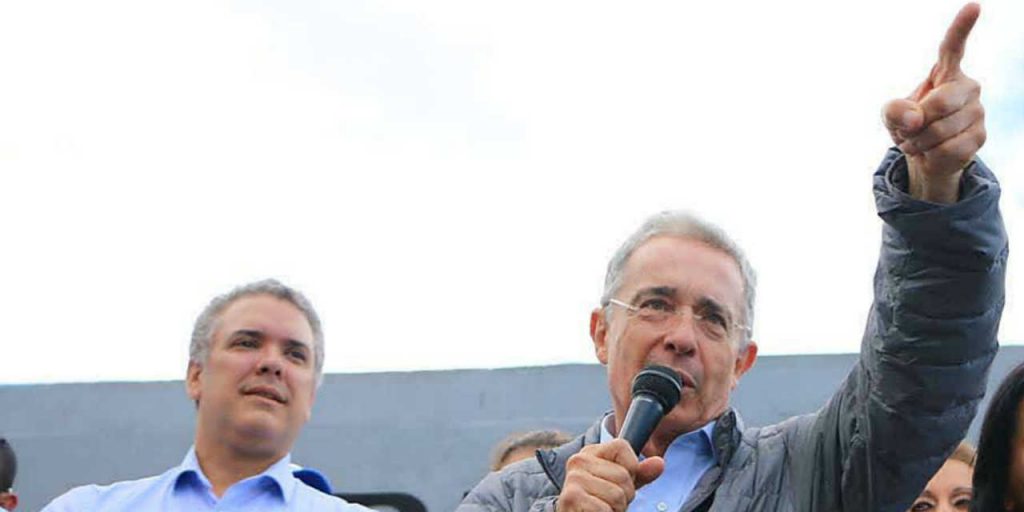Colombia’s President Ivan Duque has come under further criticism for using government outlets to challenge a Supreme Court order to place his political patron, former President Alvaro Uribe, under house arrest.
President Ivan Duque and several top officials loyal to Uribe used government social media accounts to dispute the court ruling, claiming Uribe should await his fraud and bribery trial in freedom.
Inspector General Fernando Carrillo sent out a statement, reminding that all government officials must “abide by and comply with judicial decisions” instead of disputing the rule of law.
Inspector General Fernando Carrillo
The use of executive powers to promote partisan or private interests “are not appropriate and not allowed, according to existing legal prohibitions.”
Uribe is the leader of Duque’s far-right Democratic Center party and the power behind the throne of the president whose refusal to accept the rule of law is further threatening the government’s legitimacy.
Duque’s political patron, a former Medellin Cartel associate, saw multiple of his closest aides disappear behind bars for their abuse of power while Uribe almost turned Colombia into a mafia state while in office between 2002 and 2010.
Until Uribe’s detention, the president would occasionally evade the law and his party would defend criminal interests through legislation, allowing both to pretend to be promoting the public interest.
But the court’s explicit claim it had compelling evidence indicating Uribe is a mafioso makes it virtually impossible for Duque to legally defend his allegedly criminal patron.
Uribe’s party has failed to rally significant public support as few Colombians are interested in defending alleged criminals and Duque is facing broad public disapproval.
To further complicate Duque’s position, the president’s legitimacy is being challenged by his former opponent in the 2018 elections over evidence the ruling party conspired with a drug trafficking organization to commit fraud.


